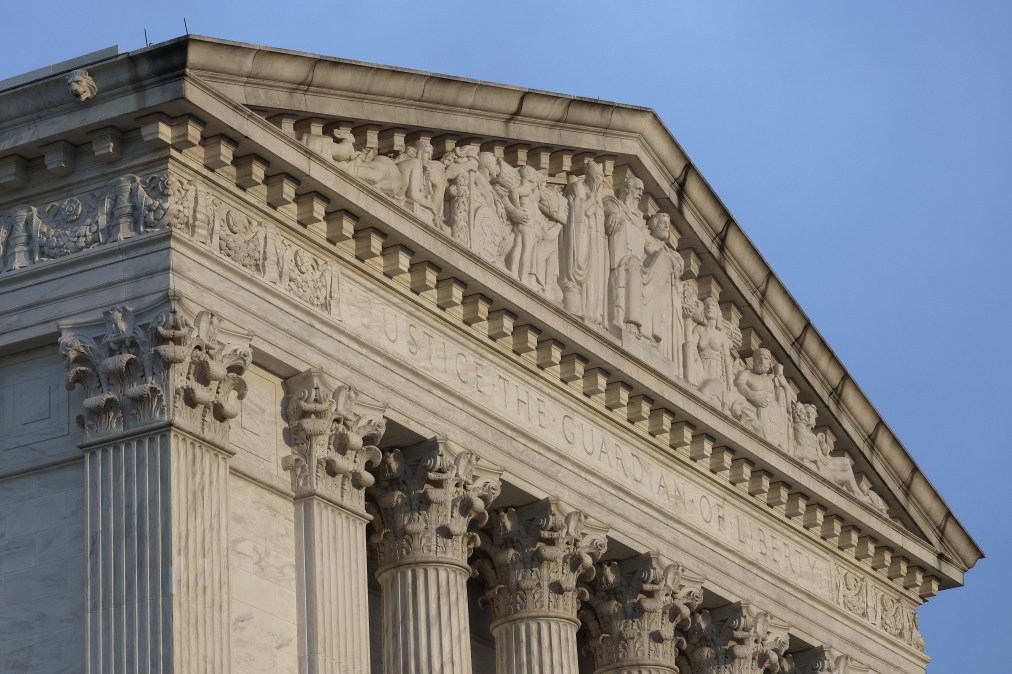Supreme Court allows DOGE to access Social Security records

The Supreme Court handed a win to President Donald Trump’s Department of Government Efficiency on Friday, granting the efficiency unit access to records at the Social Security Administration.
The unsigned opinion provides the Elon Musk-associated DOGE with even more access to sensitive government information to fulfill its mission of making government more efficient. Just last month, the team also gained access to payment systems at the Department of Treasury. The ruling also comes at an awkward time for the DOGE, as Musk — its creator — and Trump are in the midst of an apparent falling out on social media.
Per the decision, a majority of the justices voted to grant the administration’s request to stay a lower court decision and concluded that “SSA may proceed to afford members of the SSA DOGE Team access to the agency records in question in order for those members to do their work.”
While the full vote tally isn’t known, the court said Justices Elena Kagan, Ketanji Brown Jackson and Sonia Sotomayor — its three liberals — would have denied the government’s application for a stay.
In a dissent, Jackson sharply criticized the majority, arguing that granting the stay permits “the Government to give unfettered data access to DOGE regardless—despite its failure to show any need or any interest in complying with existing privacy safeguards, and all before we know for sure whether federal law countenances such access.”
Jackson, who was joined by Sotomayor in her dissent, further said that the court has decided “to relieve the Government of the standard obligations, jettisoning careful judicial decisionmaking and creating grave privacy risks for millions of Americans in the process.”
Simultaneously on Friday, the Supreme Court handed a second win to the DOGE, shielding it from producing documents as part of a discovery process in a Freedom of Information Act lawsuit. That decision built upon a temporary halt the court placed on the lower court ruling last month and remands the case to the U.S. Court of Appeals for the D.C. Circuit. The justices directed the appellate court to more narrowly tailor its discovery order consistent with the high court’s decision.
In that instance, too, Jackson, Sotomayor, and Kagan would have denied the government’s application.
The SSA decision came in a case brought by a coalition of unions and organizations who alleged that providing personal data to the DOGE was unlawful under federal privacy and administrative procedure laws and was in contrast with the agency’s commitment to privacy of personal information, among other things.
Judge Ellen Hollander of the U.S. District Court for the District of Maryland in March sided with those plaintiffs, blocking DOGE from the records and ordering that the team must delete non-anonymized information they accessed. And in May, the Fourth Circuit kept Hollander’s preliminary injunction in place in a 9-4 decision.
In response to the Supreme Court’s Friday ruling, Democracy Forward — which represents the plaintiffs in the litigation — said: “ This a sad day for our democracy and a scary day for millions of people. This ruling will enable President Trump and DOGE’s affiliates to steal Americans’ private and personal data. Elon Musk may have left Washington, D.C., but his impact continues to harm millions of people.”
The plaintiffs are the American Federation of State, County and Municipal Employees, the American Federation of Teachers, and the Alliance for Retired Americans.
This story was updated with a comment from Democracy Forward.






